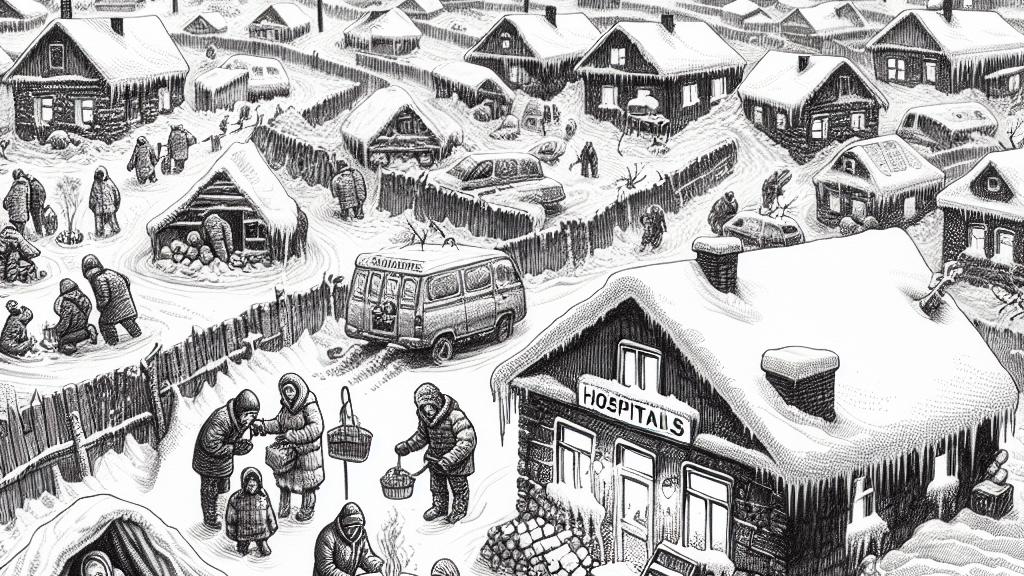Understanding Transnistria's Energy Crisis and Its Impact
Overview
- Transnistria is currently in the grips of a severe energy crisis due to the abrupt halt of Russian gas supplies, leaving residents in a state of desperation.
- The region's heavy reliance on Russian energy sources significantly magnifies its vulnerabilities, making recovery and adaptation increasingly difficult.
- Political instability within Moldova exacerbates the crisis, posing serious threats to economic resilience and social harmony.

The Immediate Effects of the Energy Cut
The closure of Russian gas supplies has plunged Transnistria into a chilling crisis. Homes are freezing, and families, like Dmitry’s, find themselves huddling for warmth as temperatures drop. Only hospitals and essential services receive heating, while the rest of the community is left in icy conditions. Desperate for solutions, residents are gathering in single rooms, utilizing every available blanket, and scavenging for firewood to survive the brutally cold winter. This situation starkly illustrates the dire humanitarian conditions that have overtaken the region, revealing the profound vulnerability of its people.
Dependence on Russian Supplies
Transnistria's complete dependence on Russian energy has ensnared it in a precarious predicament. Once a thriving industrial hub, the region now faces widespread industrial stagnation, with many factories shuttered, and only vital food production remains active to stave off hunger. As Sergei Obolonik cautions, the longer the energy crisis persists without viable solutions, the more likely these businesses will cease operations for good. This scenario vividly underscores the risks associated with extreme reliance on a single source of energy—when that source is cut off, the results can be catastrophic.
Political Ramifications in Moldova
The fallout from this energy dilemma sends shockwaves beyond Transnistria, reverberating throughout Moldova as political tensions escalate. With fears surrounding energy security mounting, the government has declared a state of emergency. As Moldova attempts to strengthen its ties with the European Union, the Kremlin may be poised to exploit this crisis as an opportunity to destabilize the region, particularly with parliamentary elections approaching in 2025. Olga Rosca articulates that this crisis is not merely a matter of energy; it represents a strategic move by Russia to reassert its influence. The interplay between energy dependency and political maneuvering creates a complex and precarious situation, one that could shape the future of both Transnistria and Moldova dramatically.
Potential Solutions and Future Outlook
Looking ahead, the path to recovery for Transnistria and Moldova is fraught with challenges. The proposed shift to coal as a temporary energy source offers little in the way of long-term sustainability. Meanwhile, Moldova’s plans to secure electricity from Europe raise significant concerns about skyrocketing costs that could further burden struggling households. Time is of the essence; both regions urgently need to explore practical and sustainable energy solutions to stave off complete economic and social collapse. Addressing these issues head-on is essential—not only for surviving the harsh winter but also for fostering resilience and stability in the face of adversity.

Loading...